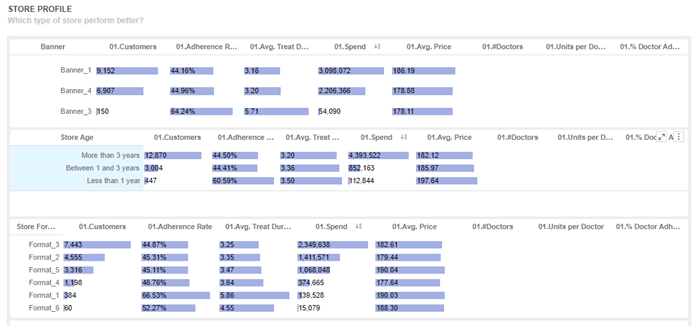Medicine’s weak link: improving prescription adherence in the post-Covid environment
The pre-pandemic world seems very far away. While health was a priority for the great majority of the population, in some ways, it had a more discretionary feel to it. There was a personal component around health that kept it from being at the forefront even if still held sway over life’s daily activities.
The last 14 months have changed that universally; now activities are measured in health risk, with potential mitigations of face masks, vaccines, and dramatic behavioural changes that have disrupted much of what was taken for granted, from how we operate professionally to how we socially interact. Health is at the forefront. This has been an extraordinarily difficult time, but it has forced a reconsideration of how important health and wellbeing is to maintaining a critical quality of life.
With the advances in medicine and subsequent increases in life expectancy, many conditions that previously were life threatening can now be managed through a regimen of medications. Yet while the medicines are often easily obtainable and require relatively minimal effort, correct use remains stubbornly low. Reports place typical adherence at approximately 50% in developed countries and even lower in developing nations. Many customers do not receive the intended health outcomes, resulting in additional and avoidable medical expense and detrimental health impacts. It is a major contributor to the overall cost of non-optimised medication therapy, which has an estimated annual cost of $500B in the USA alone.*
If the impact is not clear enough, the WHO has stated that increasing the effectiveness of adherence interventions may have a far greater impact on the health of the population than any improvement in specific medical treatments. The causes of low adherence can be characterised by many of the same factors that affect overall health.
- Access to care —availability of services and capability to leverage them
- Economic — the ability to afford
- Related Products — availability variety that aligns to condition maintenance
- Education — understanding of the condition and treatment requirements
- Social — comfort level required to successfully manage
The effects of the coronavirus have cast a universal light on the discrepancies that exist regarding these factors. Even as vaccines wrestle Covid into a more manageable state, the myriad of chronic conditions remain for customers and patients to maintain their quality of life. Operators of retail pharmacies are in a unique position to capitalise on this moment of heightened awareness to drive new and better behaviours for their customers. In order to successfully create this change, pharmacies must leverage all of their assets, across the products they sell, services they can offer, and their understanding of customers through the data they possess. By placing customers first and focusing intently on maintaining the privacy that patients demand and deserve, pharmacies will be able to build both loyalty and helping to achieve healthier and happier lives for their customers. It is a true win–win opportunity.
Enhancing data to enhance the understanding of the customer
It’s no secret that retailers have enormous amounts of information that is gathered by all of the interactions that customers have from instore activities, ecommerce, and mobile. In many cases, as much information is gathered how you didn’t buy a product or service as it is when purchased. The challenge with this data is how to leverage it in order to improve the notoriously challenging problem of customer adherence. This can be achieved in a series of steps that essentially turn the trees in the forest into lumber that can be built upon.
- Validation and organisation: In many cases, data is housed in multiple legacy systems that do not talk to one another and which must be connected to create a holistic customer view while still maintaining privacy to the individual in accordance to privacy legislation such as HIPAA and GDPR.
- Analytic enhancement: To understand customer adherence, one must be able to match medicine purchases to the appropriate timing that the medicine is used. In many cases, this must be derived through the products sold as well as customer behaviour. When reviewed longitudinally, this serves as a strong proxy for the actual usage with the assumption that a customer will not continuously purchase what they need over time, without actually taking it.
- Customer lens insights: In our analysis of customer adherence behaviour, strong patterns have emerged that create segments of adherence. These groups clearly show customers who are at varying levels of non-adherence risk with thresholds that align to their ability to maintain adherence, lapse, and finally abandon a treatment. Each segment can be quantified and investment choices made that will yield the greatest opportunities for success.
- Tools to scale actions: Many of the leading pharmacies have millions of customers using thousands of medications to manage hundreds of conditions. Even with the correct data and insights an ad hoc approach is not sustainable. It is essential that the information can be reviewed easily across the business in order to create the most effective adherence improving activities.
- Collaboration to maximise opportunity: Even the largest and most data-driven organisations have constraints on the resources that can be brought to bear on opportunity identification and potential courses of action. By working closely with the pharmaceutical suppliers through a common customer first platform with greatly expand the ability to develop solutions that align objectives through a single source of truth.
Actional Insights to improve customer adherence
With the ability to harness the data and identify the greatest areas of need, pharmacies and their supplier partners can formulate many approaches to action. As one size does not fit all in retail, so is the case with adherence. Considering the many variations of the five health drivers on customer behaviour, the most effective solutions will likely be a combination of actions across the offering, communication, and business operations.
Several challenges to consider include:
- Adherence drop-off: customers for any given treatment are becoming significantly less adherent between specific months, yet for those who maintain adherence; the drop off stabilised after a specific period

- Brand underperformance: customers’ adherence to a brand is comparatively weaker to the overall active ingredient, indicating a deficiency in the offering
- Switching: customers are moving between brands and products to manage the same condition

- Store Performance: a wide range of adherence levels for the same treatment is occurring across the store network

- Price-sensitive customers are maintaining weaker adherence than other segments
- Significant customers have lapsed from the treatment but are still shopping with the Retailer
Potential Actions
- Personalised communication: Time-specific messaging to reinforce the customer understanding regarding the need to continue
- Clinical Services: Ensure that pharmacists are discussing and questions and concerns at each point of contact
- Operations: Identify operational issues at low-adherence stores and disseminate best practices from high performance locations
- Adherence Programmes: Plan targeted campaigns to educate and incentivise customers

An adherence programme (PUC) can have a positive impact on adherence
- Pricing: Understand pricing and promotional impacts to encourage the appropriate frequency of purchase
- Category Management: Ensure that customers have access to the right combination of products in every store
- Innovation: Identify opportunities for product development and review performance of new products
- Drivers beyond treatment: Expand offerings of key co-morbidity and non-prescription categories important to key customers
In this moment, awareness of health and wellness is heightened across all customers. It is critical to focus on the customer and create opportunities for them to best manage their daily health. With an in-depth understanding to meet their challenges, pharmacies and suppliers can ‘bend the curve’ of adherence to maintenance medications, build loyalty, improve performance and health outcomes for customers.
RELATED PRODUCTS
The latest insights from our experts around the world



